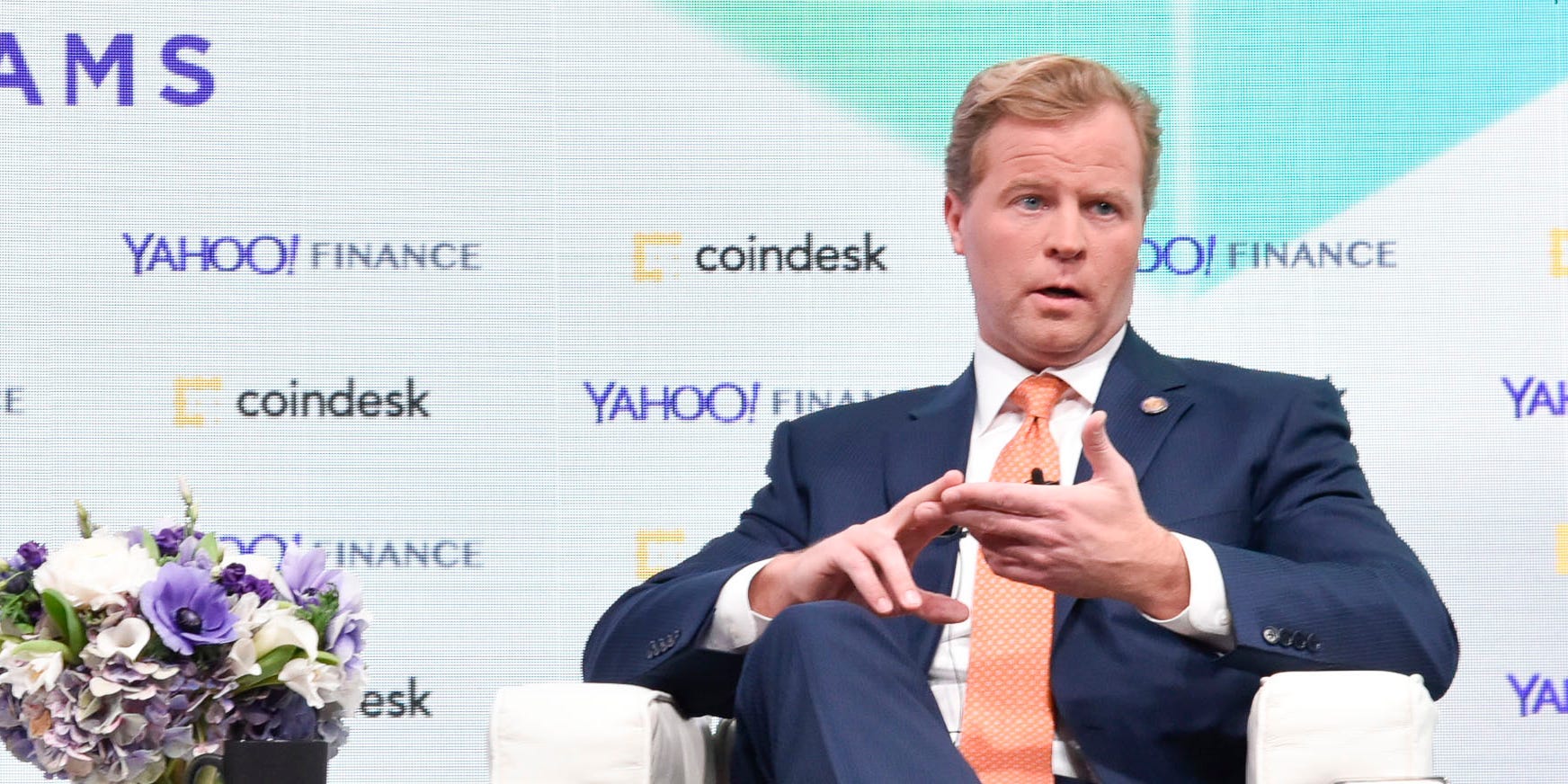
Eugene Gologursky/Getty Images for Yahoo Finance/Oath
- CFTC Republican Commissioner Brian Quintenz said the SEC has "no authority over pure commodities or their trading venues."
- His comment came after SEC Gary Gensler said many crypto assets are securities and are under the SEC's purview.
- Former CFTC head and "Crypto Dad" Christopher Giancarlo, also said cryptocurrencies should not be regulated by the SEC.
- Sign up here for our daily newsletter, 10 Things Before the Opening Bell.
An official from the Commodity Futures Trading Commission took aim this week at SEC chief Gary Gensler's assertion that most crypto assets are securities and therefore under the jurisdiction of the SEC.
CFTC Republican Commissioner Brian Quintenz in a tweet on Wednesday said, "the SEC has no authority over pure commodities or their trading venues whether those commodities are wheat, gold, oil… or #crypto assets."
His statement comes after Gensler this week said many crypto assets should be considered securities.
If formalized, Gensler's definition would place hundreds of coins within the $1.6 trillion cryptocurrency market under his agency's jurisdiction.
The US House Committee on Agriculture retweeted Quintenz's post shortly after, saying: "#crypto is bigger than the SEC," which is why, the committee added, Congress needs to write the rules.
Former CFTC head and "Crypto Dad" Christopher Giancarlo, meanwhile, also added his views to the conversation on Wednesday.
"Only one US regulatory agency has experience regulating markets for #Bitcoin & #Crypto and it is not @SECGov. It is @CFTC."
If Biden Administration is serious about "sensible cryptocurrency regulation," it needs to nominate a CFTC chairman, Giancarlo said.
Currently, the agency's acting chairman is Rostin Behnam. He took the helm in January 2021, succeeding Heath Tarbert.
The heated debate over who should police crypto highlights the difficulty in applying existing regulations to the nascent space.
Bitcoin, for example, is considered a commodity under the Commodity Exchange Act, but for the thousands of other crypto assets, their designation - whether they are considered commodities, currencies, or securities - is unclear.
Sen. Elizabeth Warren on Wednesday urged her colleagues in Congress to speed up efforts to regulate the space. She highlighted the risks caused by a lack of oversight and how this might fall on the shoulders of US taxpayers.

